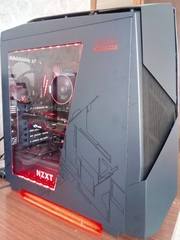Project psu: dedicated 12v or cheap ATX?
-
Topics
-
2
-
2
-
3
-
drowninginmetal ·
Posted in New Builds and Planning1 -
1
-
2
-
VoiceLessQ ·
Posted in General Discussion4 -
1
-
2
-
CarlBar ·
Posted in Troubleshooting5
-
-
play_circle_filled

Latest From Linus Tech Tips:
He Spent 3 YEARS Begging me for a PC. Good Luck Finding it!
















Create an account or sign in to comment
You need to be a member in order to leave a comment
Create an account
Sign up for a new account in our community. It's easy!
Register a new accountSign in
Already have an account? Sign in here.
Sign In Now